The Problem: When Money Talks Louder Than Votes
Picture this: You’re a young entrepreneur with a brilliant idea for affordable housing, but you can’t get a meeting with your representative because they’re too busy courting donors who can write five-figure checks. Meanwhile, pharmaceutical companies spend millions lobbying against prescription drug price reforms that could save your family hundreds of dollars monthly. This isn’t democracy—it’s an auction where the highest bidder wins.
The influence of money in politics has reached a crisis point. Wealthy donors and corporations now have disproportionate access to lawmakers, drowning out the voices of ordinary citizens. For young adults already struggling with student debt, housing costs, and stagnant wages, this system feels rigged against their interests and needs.
Why Campaign Finance Reform Matters Now
Campaign finance reform isn’t just about abstract fairness—it directly impacts the issues that matter most to young, diverse, and working-class Americans. When politicians depend on wealthy donors, they’re less likely to support policies like student loan forgiveness, affordable healthcare, climate action, or criminal justice reform. Instead, they cater to the priorities of their financial backers.
Consider the data: the average House race now costs over $1.7 million, while Senate races average $10.4 million. This creates an enormous barrier for candidates who don’t have wealthy connections, particularly affecting women, people of color, and younger candidates who could bring fresh perspectives to government.
Key Reform Solutions That Can Make a Difference
Public Campaign Financing: Instead of relying on private donations, candidates would receive public funds to run competitive campaigns. This levels the playing field, allowing candidates to focus on voters rather than fundraisers. Cities like New York have successfully implemented matching funds programs that amplify small donations.
Contribution Limits and Transparency: Stricter limits on individual and corporate contributions, combined with real-time disclosure requirements, would reduce the influence of mega-donors. When voters know who’s funding campaigns, they can make more informed decisions.
Overturning Citizens United: The 2010 Supreme Court decision that allowed unlimited corporate spending in elections needs to be reversed through a constitutional amendment. This would restore limits on corporate political influence and reduce the flood of dark money in campaigns.
Small Donor Empowerment: Programs that match small donations with public funds encourage grassroots participation. When your $25 donation is matched 6-to-1, your voice suddenly carries more weight than a billionaire’s check.
The Path Forward: Building a Movement
Real change requires sustained pressure from voters, especially young people who have the most to gain from a fairer system. This means supporting candidates who refuse corporate PAC money, volunteering for campaigns that prioritize reform, and staying engaged between elections.
Progressive organizations, advocacy groups, and community leaders in Black and Latino communities are already building coalitions around these issues. By joining these efforts, ordinary citizens can amplify their collective voice and demand accountability from elected officials.
What’s at Stake
Campaign finance reform isn’t just about cleaning up politics—it’s about ensuring that government works for everyone, not just the wealthy few. When money dominates politics, policies that could help young people build wealth, address climate change, and create economic opportunity get sidelined in favor of tax cuts for the rich and corporate subsidies.
The choice is clear: continue with a system where your voice is drowned out by corporate cash, or fight for reforms that give every citizen an equal say in democracy. The time for change is now, and it starts with recognizing that your vote and your voice matter more than any campaign contribution ever could.
Democracy works best when everyone has a seat at the table—not just those who can afford to buy one.
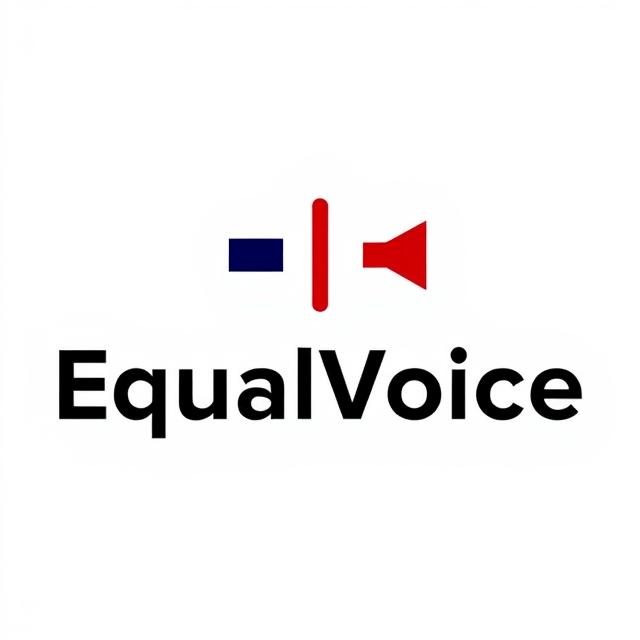
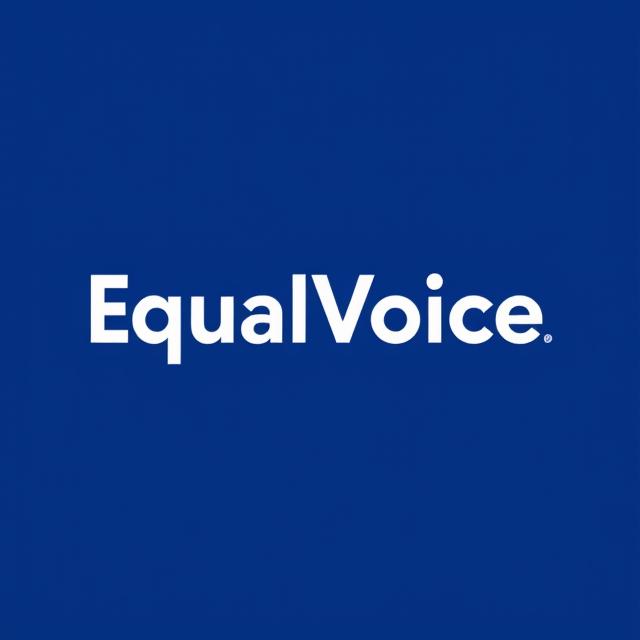
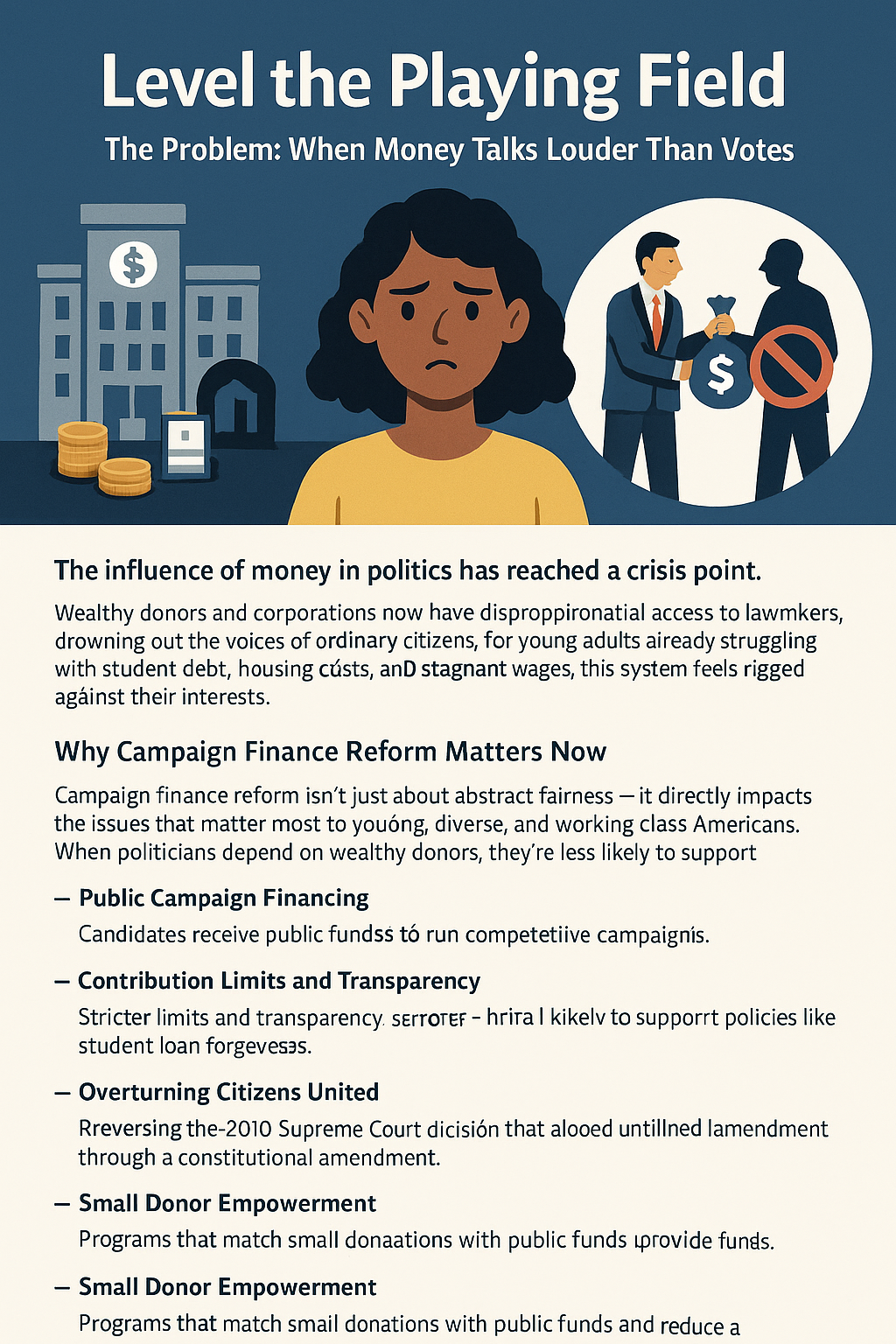

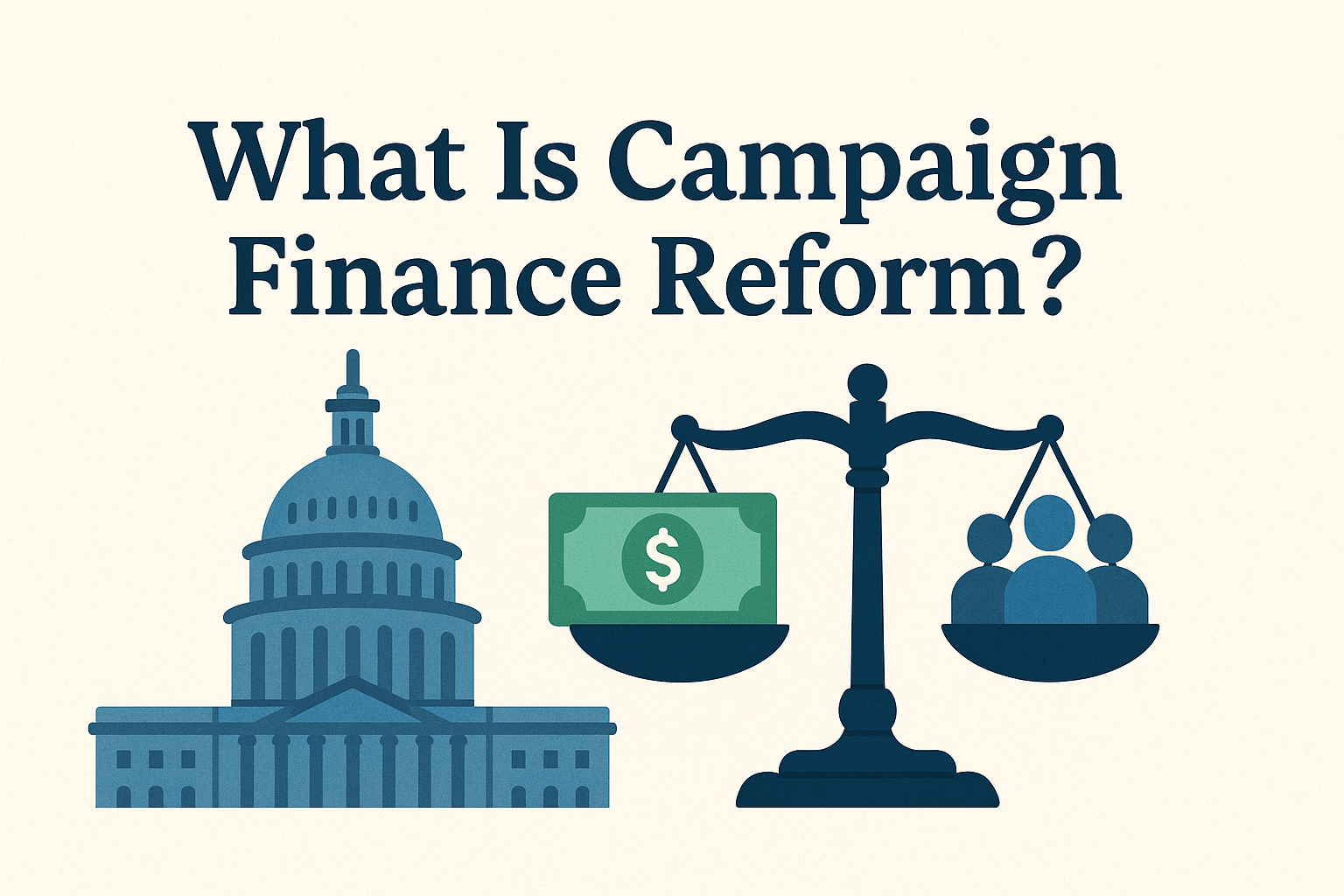
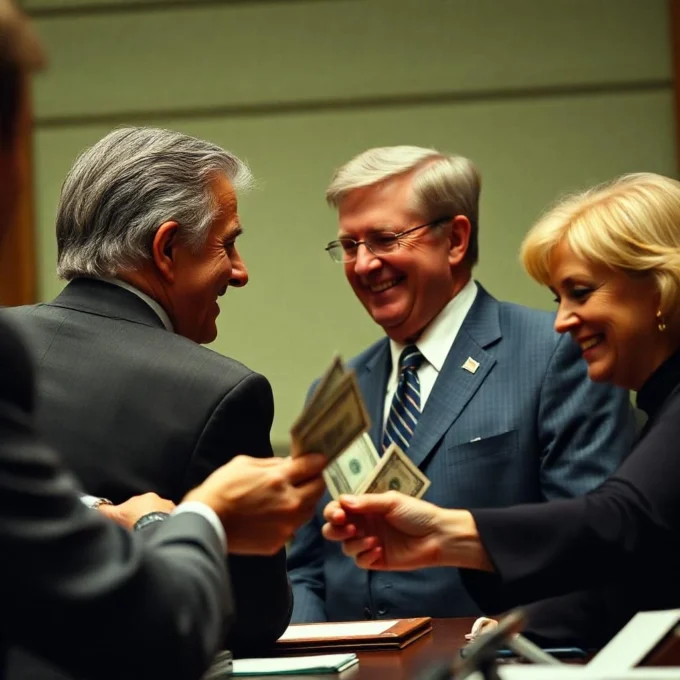
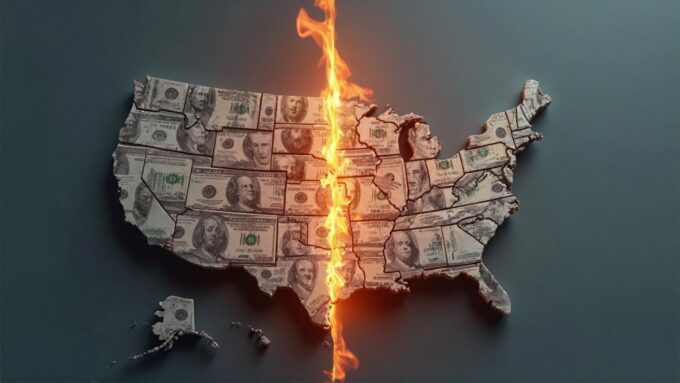
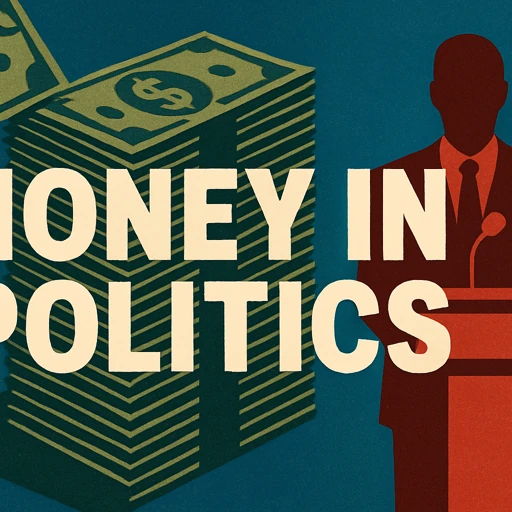
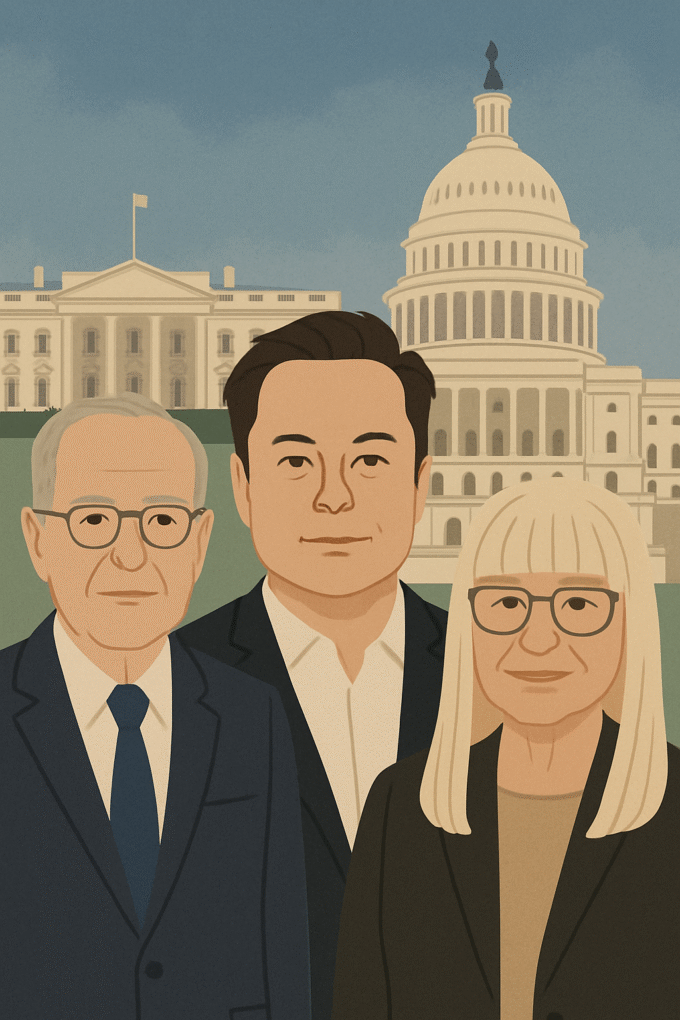
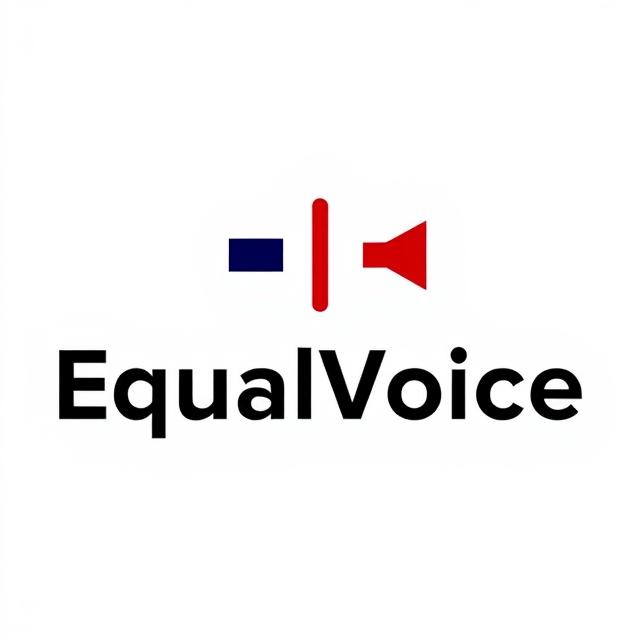
Leave a comment